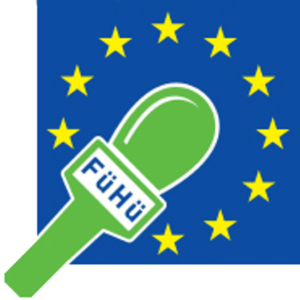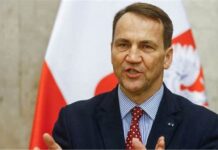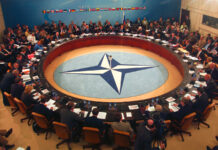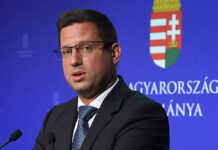In Hungary one doesn’t have to worry about Russian fake news and disinformation because Hungarians are fed the same by their own government, writes Hungarian Spectrum:
Two days ago the foreign ministers of the European Union met in Brussels with Federica Mogherini, the EU high representative for foreign affairs and security policy, presiding. She asked the ministers to support her request to increase human and financial resources “to fight against disinformation and propaganda coming from abroad,” in particular from Russia. According to newspaper reports, “nobody inside the room was opposed to beefing up the task forces involved in such an undertaking.” This unanimity is quite a change from only a few months ago, when the European Council blocked a similar proposal.
The initiative for a joint European effort to combat Russian interference in the political processes of member states came from a Romanian member of the European Parliament, Siegfried Mureșan, who suggested in May that funds for that use be included in next year’s EU budget. It was high time to pay more attention to the problem. Russia has a small army of hackers and trolls. By contrast, the EU’s task force that concentrates on the eastern front has 15 employees and the one that focuses on the Western Balkans and the Arab-speaking world is even smaller than that.
For some time Russia has been active in Europe as well as in North America. For instance, Russian hackers got hold of nine gigabytes of e-mails from Macron’s campaign. Macron complained to Putin at their first meeting in May about Russia Today and Sputnik, financed by Russia’s defense ministry, which attacked Macron’s En Marche! Movement. But Russia’s cyber weapon against the West has proved to be very effective, and Putin has no intention of curbing his hackers’ activities.
Good examples of Russian manipulation can be seen in the Catalonian independence referendum and Brexit. Spanish Foreign Minister Alfonso Dastis announced that his government had confirmed that a propaganda campaign intended to destabilize Spain came from Russia and Venezuela. They used Twitter, Facebook, and other internet sites to publicize the separatist cause and swing public opinion to support it.
Researchers at the University of Edinburgh identified 419 accounts operating from the Russian Internet Research Agency (IRA) that attempted to influence British politics. Russian hackers also spread anti-Islamic sentiments in Great Britain after the recent terrorist attacks. According to The Guardian, hundreds of paid bloggers work around the clock at IRA “to flood Russian internet forums, social networks and the comments sections of western publications—sowing disinformation, praising the country’s president, Vladimir Putin, and raging at the west.” On Monday Theresa May addressed the issue in a speech, saying that Russia’s actions were “threatening the international order on which we all depend.”
The latest complaint came today from the Netherlands. Kajsa Ollongren, minister of the interior, accused Russia of attempting to influence public opinion in the Netherlands by spreading fake news and misinformation. She stated that her country is being “monitored by Russia’s security services which constantly search for opportunities to undermine it in ways that are easy, anonymous, fast and cheap.” She came up with specific examples, one of which was using a group of Ukrainian émigrés with Russian sympathies to try to tilt Dutch public opinion towards a no vote in the referendum on the EU-Ukraine Association Agreement—which was, in fact, rejected in 2016.
Today Sergey Lavrov, Russia’s foreign minister, answered these accusations. “We are quite accustomed now that some of our partners in Europe and across the ocean apparently have no better things to do than blaming our media or branding them as foreign agents. Apparently, the explanation is that people in the capitals, from which such accusations come, be that Madrid or London, are facing numerous unresolved domestic problems. And, probably, get into such sensationalized fits of hysterics to draw the attention of their voters away from their inability to solve those problems,” reported Russia Today.
Hungary’s attitude to Russian internet propaganda shows the usual ambivalence. In May 2017 the European People’s Party held its conference in Malta, where the Fidesz members of the party voted with the majority in condemning “Russian disinformation undermining Western democracy.” Two months later, however, in Budapest, the Fidesz members of parliament rejected a proposal identical with the one Fidesz MEPs voted for. The opposition party LMP translated the text of the EPP statement into Hungarian and turned it in as their own proposal. The document didn’t even get to the floor. It died in committee.
At the November 13 meeting of EU foreign ministers, Szijjártó, along with all his colleagues, voted for the expansion of EU efforts to defend against the systematic cyberattacks on EU member countries. But this piece of information didn’t make it to the Hungarian media. Foreign Minister Szijjártó gave a quick press conference in the intermission, during which he assiduously avoided talking about Russian cyberattacks and concentrated instead on the migrant issue. He also complained bitterly about Ukrainian atrocities against Hungarian symbols in Berehove/Beregszász, where someone took off the Hungarian flag from town hall and put a dirty shirt on Sándor Petőfi’s statue. This anti-Hungarian incident is probably a response to Hungary’s recent treatment of Ukraine.
Hungary has been preoccupied with Ukraine ever since Kiev passed an education law stating that minority students will be able to learn all subjects in their own language in the first four grades but, starting with grade five, with the exception of one or two subjects, the language of instruction will be Ukrainian. Péter Szijjártó said that Hungary will veto all of Ukraine’s moves to strengthen its ties to the European Union. Hungary’s first opportunity to isolate Ukraine came at the end of October when Hungary vetoed a planned December 6 meeting of the NATO-Ukraine Commission. The NATO-Ukraine Commission is a decision-making body responsible for developing relations between NATO and Ukraine and directing cooperative activities between them. Sputnik reported the good tidings that “Hungary announced that it will block Ukraine’s aspirations to integrate into NATO.” In the meantime, Russian hackers and trolls are incredibly active in Ukraine. In Hungary one doesn’t have to worry about Russian fake news and disinformation because Hungarians are fed the same by their own government.
NOVEMBER 15, 2017
(republished with permission)




































